The NECO Literature in English syllabus is designed to get students really into different kinds of books and plays from various times and places. The main idea is to help students learn to love literature, think critically about what they read, and understand how a story is shaped by the time and culture it comes from.
The NECO Syllabus for Literature in English is broken down into three parts: Drama, Prose (like novels and short stories), and Poetry. For each part, there are specific books students have to read, such as “The Lion and the Jewel” by Wole Soyinka and “Wuthering Heights” by Emily Brontë. By studying these, students learn how to look at things like storytelling methods, how characters are built, the main ideas or messages, and the author’s writing style.
Students will read works by both African and non-African writers. This helps them explore common human experiences and themes, which can broaden their understanding of the world.
Outline of NECO Syllabus For Literature in English
| Paper | Description | Content | Duration | Marks |
|---|---|---|---|---|
| Paper 1 | Multiple Choice Objective Test | 20 questions on General Knowledge of Literature<br>- 5 questions on an unseen prose passage (120–150 words)<br>- 5 questions on an unseen poem<br>- 20 context-based questions on the prescribed Shakespearean text | 1 hour | 50 marks |
| Paper 2 | Essay Test | Section A: 2 essay questions on African Prose<br>- Section B: 2 essay questions on Non-African Prose<br>Candidates answer one question from each section. | 1 hour 15 minutes | 50 marks |
| Paper 3 | Drama and Poetry | Section A: 2 questions on African Drama<br>- Section B: 2 questions on Non-African Drama<br>- Section C: 2 questions on African Poetry<br>- Section D: 2 questions on Non-African Poetry<br>Candidates answer one question from each section. | 2 hours 30 minutes | 100 marks |
Prescribed Texts (2021–2025)
| Category | Title | Author |
|---|---|---|
| African Prose | Second Class Citizen | Buchi Emecheta |
| Unexpected Joy at Dawn (2018 Edition) | Alex Agyei-Agyiri | |
| Non-African Prose | Wuthering Heights | Emily Brontë |
| Invisible Man | Ralph Ellison | |
| African Drama | Let Me Die Alone | John K. Kargbo |
| The Lion and the Jewel | Wole Soyinka | |
| Non-African Drama | Look Back in Anger | John Osborne |
| Fences | August Wilson | |
| African Poetry | “Black Woman” | Leopold Sedar Senghor |
| “The Leader and the Led” | Niyi Osundare | |
| “The Grieved Lands” | Agostinho Neto | |
| “The Song of the Woman of my Land” | Oumar Farouk Sesay | |
| “Raider of the Treasure Trove” | Lade Wosornu | |
| “A Government Driver on His Retirement” | Onu Chibuike | |
| Non-African Poetry | “The Good-Morrow” | John Donne |
| “Caged Bird” | Maya Angelou | |
| “The Journey of the Magi” | T.S. Eliot | |
| “Do Not Go Gentle into That Good Night” | Dylan Thomas | |
| “Binsey Poplars (Felled 1879)” | G.M. Hopkins | |
| “Bat” | D.H. Lawrence | |
| Shakespearean Text | A Midsummer Night’s Dream | William Shakespeare |
Examination Structure
The NECO Literature in English exam is divided into three main papers, each testing different aspects of literary knowledge and skills:
Paper 1 is an objective test comprising 50 multiple-choice questions. These include general questions on literary appreciation, analysis of unseen prose and poetry passages, and contextual questions based on the prescribed Shakespearean drama.
Paper 2 is an essay-type paper focused on prose. It is divided into two sections: African Prose and Non-African Prose. Candidates are required to answer one question from each section, demonstrating their ability to analyze characters, themes, and literary techniques.
Paper 3 covers Drama and Poetry. It is structured into four sections: African Drama, Non-African Drama, African Poetry, and Non-African Poetry. Candidates must answer one question from each section, showing their understanding of dramatic and poetic elements, authorial intent, and cultural context.
Note: Collectively, the examination aims to assess candidates’ interpretative skills, analytical depth, and appreciation of literary diversity.
Recommended NECO Textbooks for Literature in English
- Understanding Literature in English” by Iwuchukwu Chinwe – Offers a comprehensive analysis of literary genres and terms.
- “Exam Focus Literature in English for Senior Secondary Schools” – A tailored guide that includes summaries and past question solutions.
- “Essential Literature in English” by Ibitola O.O. – Provides thematic and stylistic breakdowns of the recommended texts.
- “Advanced English Literature” by Adebayo A. – Great for deepening understanding of literary history and global contexts.
- WAEC/NECO Literature Past Questions and Answers – Crucial for practice and familiarization with the exam format.
- Supplementary resources like Shakespeare Made Easy: A Midsummer Night’s Dream help simplify complex texts for student understanding.
Conclusion
More than just preparing for an exam, this syllabus encourages students to enjoy reading and to think about the messages behind the stories they read. With the right textbooks, consistent practice, and a genuine interest in the subject, students can succeed in NECO Literature and carry those skills into other areas of learning and life.
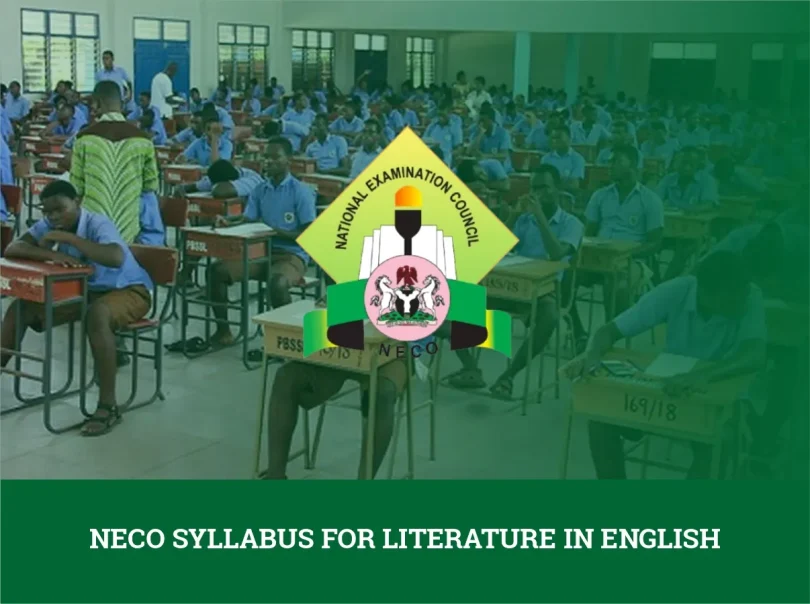
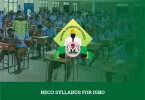
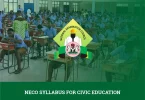
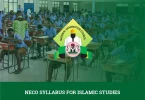


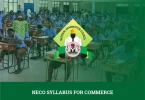
Leave a Comment